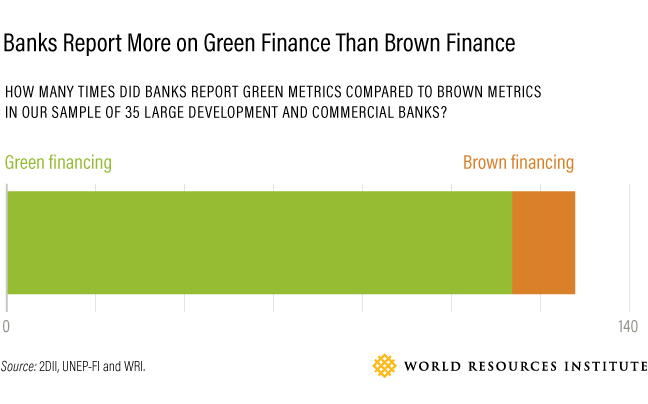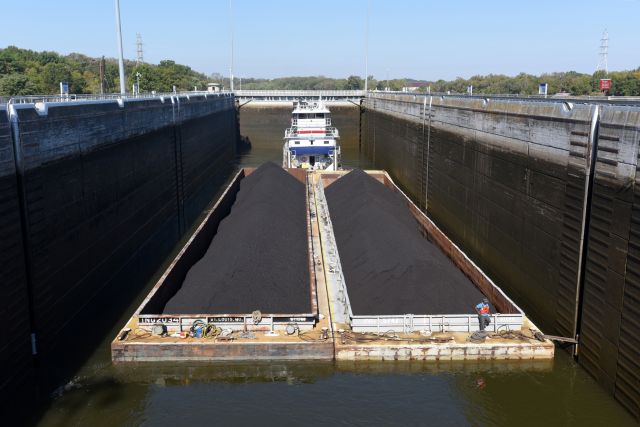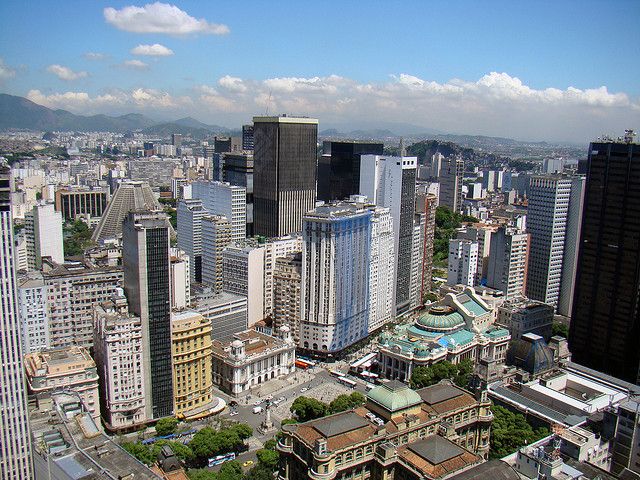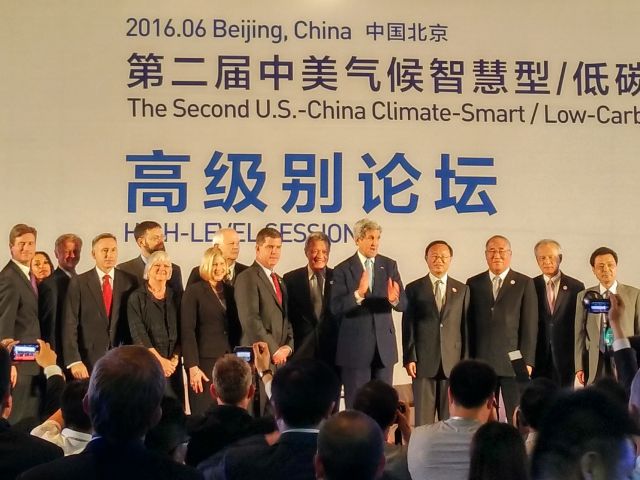Blog
Many Companies Inaccurately Estimate the Climate Benefits of Their Products
Cold-water laundry detergents, fuel-saving tires, energy-efficient ball bearings, emissions-saving data centers. Corporations are increasingly claiming that their goods and services reduce emissions. But there is a big problem: These avoided emissions claims are often unverifiable or inaccurate.
GLEC Framework: a universal method for logistics emissions accounting
This week, the Smart Freight Center released the GLEC Framework, a guide for shippers, carriers and logistics service providers on how to report emissions from logistics operations. It is meant to be used in conjunction with the Corporate Standard, and it has earned the “Built on GHG Protocol” mark for its compliance with GHG Protocol’s requirements.
The World Is Counting on Banks to Deliver Climate Finance. Counting Their Progress Is No Easy Feat.
 Banks are connected to every part of the economy through their investing and lending activities. That means they play a crucial role in financing the transition to a low-carbon economy. The financial sector is increasingly aware of the need to shift capital flows away from companies and activities that contribute to the climate problem and into climate solutions.
Banks are connected to every part of the economy through their investing and lending activities. That means they play a crucial role in financing the transition to a low-carbon economy. The financial sector is increasingly aware of the need to shift capital flows away from companies and activities that contribute to the climate problem and into climate solutions.
Launch of GHG Calculation Tool for Chinese Power Plants
In partnership with China Electricity Council (CEC), WRI developed a greenhouse gas (GHG) calculation tool for Chinese coal-fired power plants.
Scope 3 Evaluator Now Available
The Greenhouse Gas Protocol and Quantis have joined forces to develop and launch the Scope 3 Evaluator - a free, web-based tool that allows users to make an initial, rough approximation of their full Scope 3 footprint, regardless of the size or type of organization. Read the full press release here.
Chengdu Shows How Cities Can Turn Climate Commitments into Action
Chengdu Development and Reform Commission developed its first greenhouse gas inventory in 2015 (based on 2010 data). This inventory revealed valuable insights about the sources of the city’s emissions.
Hundreds of Cities Poised to Replicate Rio’s Approach to Measuring and Reducing Emissions
Rio de Janeiro is one of the world’s leading cities injecting sustainability into its planning. In 2011, Mayor Eduardo Paes enacted an ambitious climate change law, setting a goal to avoid 20 percent of its emissions by 2020, based on 2005 levels. There was only one problem: The city wasn’t sure just how much it was emitting, or where its emissions were coming from.
Do We Need a Standard to Calculate “Avoided Emissions”?
By Laura Draucker - November 05, 2013
New Greenhouse Gas Accounting Tool Will Help China’s Cities Pursue Low-Carbon Development
Low-carbon development has become the core theme of China’s urbanization. In fact, it’s one of the country’s key strategies to achieve its target of reducing carbon intensity by 40-45 percent by 2020.
23 Chinese Cities Commit to Peak Carbon Emissions by 2030
More than half the world’s people live in cities, and cities are responsible for more than 70 percent of all energy-related carbon dioxide emissions on Earth. These dramatic statistics mean cities have a critical role to play in addressing climate change.
Through Compact of Mayors, 360 Cities Will Cut Their Emissions 17% by 2030
As home to 3.5 billion of the world’s population, cities and urban areas play a crucial role in combating global climate change. And today, many of their leaders are announcing steps to do just that.
Mexico Bases Climate Change Strategy on GHG Program
The Mexican government has adopted a new national climate change strategy that identifies the GHG Protocol-based Mexico GHG Program as the basis of a step-by-step approach to climate change mitigation.
Launch of the GHG Protocol Product Life Cycle and Corporate Value Chain Standards
On October 4th the GHG Protocol launched the new Product Life Cycle and Corporate Value Chain Standards with events in New York City and London. The global press launch of the Standards in New York City occurred in conjunction with WRI’s Corporate Consultative Group (CCG) fall meeting. CCG is a group of 150-200 representatives of large corporations, mainly sustainability managers, who are coming to engage with WRI experts – and with each other – to access environmental intelligence in order to protect and grow shareholder value and steer business to better protect the environment.
Otarian Restaurant in New York City Uses WRI’s Greenhouse Gas Protocol
On the evening of April 14th, WRI filled a role not normally reserved for environmental think tanks: VIP guest at a high-profile New York restaurant opening. Otarian, now open in New York City’s West Village, is a new boutique fast-casual restaurant chain based on the principles of sustainability and vegetarianism. Otarian is also the first global restaurant chain to track the carbon footprint of all of its menu items.
New Journal for 2011: Greenhouse Gas Measurement & Management
A new journal, Greenhouse Gas Measurement & Management, focuses on the infrastructure to support future GHG mitigation policies by providing a scholarly forum for both academic researchers and GHG professionals.
Program Officially Transitions from Pilot Phase to Headquarters at SEMARNAT
The Mexico GHG Program officially transitioned from a pilot project to a permanent program on October 2, marking a significant milestone for the program partners and 30 par
LULUCF Performance Standard Approach Met with Enthusiasm at Nairobi Launch
Project developers are concerned that high transaction costs and uncertainty around the acceptance of projects by governing bodies is limiting the number of projects being developed in Africa and around the world.
New initiative announced to help ICT industry measure carbon footprint
ICT companies and their customers will soon have common approaches and methodologies to calculate the carbon footprints of ICT products and services thanks to industry guidance due to be published at the end of the year.
Pilot a New SWOT Tool for Sustainability
As corporate leaders track and set more ambitious targets for reducing GHG emissions—and take a broader look at Scope 3 emissions—many are looking for a way to find new opportunities to collaborate (internally and externally). Starting this month, WRI is inviting companies to road test a new collaboration tool developed as part of the Next Practice Collaborative.
















